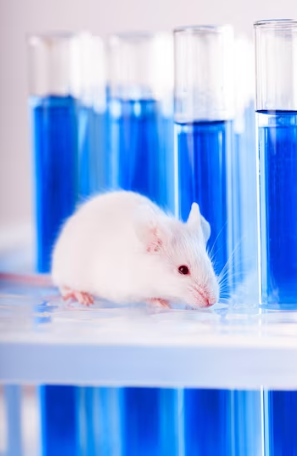Introduction
Cancer research has come a long way in recent decades, but it continues to face numerous challenges, especially when dealing with rare or aggressive cancer types. The use of Patient-Derived Xenograft (PDX) mouse models has emerged as a promising tool that has revolutionized the way we study and understand these challenging cancers. PDX models involve the transplantation of human tumor tissue into immunodeficient mice, allowing researchers to closely mimic the tumor’s behavior in its natural environment.
In this blog, we’ll delve into the significance of PDX mouse models in cancer research, explore their applications, and discuss their relevance in studying rare and aggressive cancer types. At the end of our exploration, we’ll introduce you to TheraIndx, a pioneering company offering PDX mouse model services that are revolutionizing cancer research.
Understanding PDX Mouse Models
PDX mouse models, also known as xenograft models, are invaluable tools in cancer research. These models are created by transplanting human tumor tissue, obtained directly from cancer patients, into immunocompromised mice. The result is a highly specialized, patient-specific model that mirrors the molecular and cellular features of the original tumor. Unlike traditional cell line-based models, PDX models maintain the tumor’s complex heterogeneity, preserving its genetic, histologic, and microenvironmental characteristics. This makes PDX models a superior choice for studying cancer, as they provide a more accurate representation of how tumors behave in humans.
Applications of PDX Mouse Models
PDX mouse models have a wide range of applications in cancer research, making them invaluable for understanding, diagnosing, and developing novel treatments for various cancer types. Some key applications include:
- Drug Development and Testing: PDX models enable researchers to evaluate the efficacy of potential cancer drugs in a patient-specific context. This significantly improves the success rate of preclinical trials, allowing for the identification of drugs that are more likely to work in humans.
- Personalized Medicine: Rare and aggressive cancer types often lack standard treatment options. PDX models offer a platform for testing individualized treatment approaches, ultimately leading to more tailored therapies for patients.
- Biomarker Discovery: PDX models can help identify biomarkers associated with disease progression and response to treatment. These biomarkers are crucial for early diagnosis and targeted therapies.
- Studying Tumor Microenvironment: PDX models enable the investigation of the tumor microenvironment, including interactions with immune cells, stromal cells, and blood vessels. This provides insights into the complex ecosystem of tumors.
- Mechanism of Resistance: Understanding why some tumors become resistant to treatment is a crucial challenge in cancer research. PDX models can shed light on the mechanisms of resistance, aiding in the development of strategies to overcome it.
Studying Rare and Aggressive Cancers
Rare and aggressive cancer types pose unique challenges in both diagnosis and treatment. Due to their limited prevalence, traditional research methods often lack sufficient data for comprehensive study. PDX mouse models, however, have emerged as a powerful tool in unraveling the mysteries of these challenging cancers.
- Rare Cancers: The rarity of certain cancer types, such as angiosarcoma, cholangiocarcinoma, or acinic cell carcinoma, limits the availability of clinical samples for research. PDX models allow researchers to create patient-specific models, providing a deeper understanding of these rare cancers and offering potential treatment avenues.
- Aggressive Cancers: Aggressive cancers, such as glioblastoma, pancreatic cancer, or small-cell lung cancer, are known for their rapid progression and resistance to treatment. PDX models can help explore the underlying mechanisms responsible for their aggressiveness, as well as test novel therapeutic approaches tailored to individual patients.
TheraIndx: A Pioneer in PDX Mouse Model Services
As PDX mouse models gain prominence in cancer research, selecting the right partner for model creation and study is crucial. TheraIndx, a leading company in the field, offers state-of-the-art PDX mouse model services to support the fight against cancer. Their commitment to excellence and innovation has made them a trusted resource for researchers and pharmaceutical companies worldwide.
TheraIndx’s services encompass:
- Patient-Derived Xenograft Models: TheraIndx specializes in creating highly reliable PDX models that accurately recapitulate the tumor’s characteristics, enabling researchers to conduct in-depth studies.
- Customization: Recognizing the unique nature of each patient’s tumor, TheraIndx tailors PDX models to the specific requirements of researchers, ensuring the most relevant data is obtained.
- Drug Testing and Validation: TheraIndx’s PDX models are used for drug screening, providing invaluable insights into treatment efficacy, drug resistance, and personalized medicine approaches.
- Collaborative Partnerships: TheraIndx collaborates with cancer research centers, academic institutions, and pharmaceutical companies, fostering a community-driven approach to cancer research.
- Comprehensive Data Analysis: TheraIndx doesn’t stop at model creation but also provides extensive data analysis and interpretation, making it easier for researchers to draw meaningful conclusions from their studies.
Conclusion
The use of PDX mouse models has redefined the way we study rare and aggressive cancer types, offering a more personalized and relevant approach to understanding and treating these diseases. TheraIndx, a leading company in the field, is at the forefront of this innovative research, providing researchers with the tools and support they need to make groundbreaking discoveries in the fight against cancer. As we continue to expand our knowledge of cancer and develop more effective treatments, PDX models will remain an indispensable resource, helping us unlock the mysteries of these challenging diseases.


